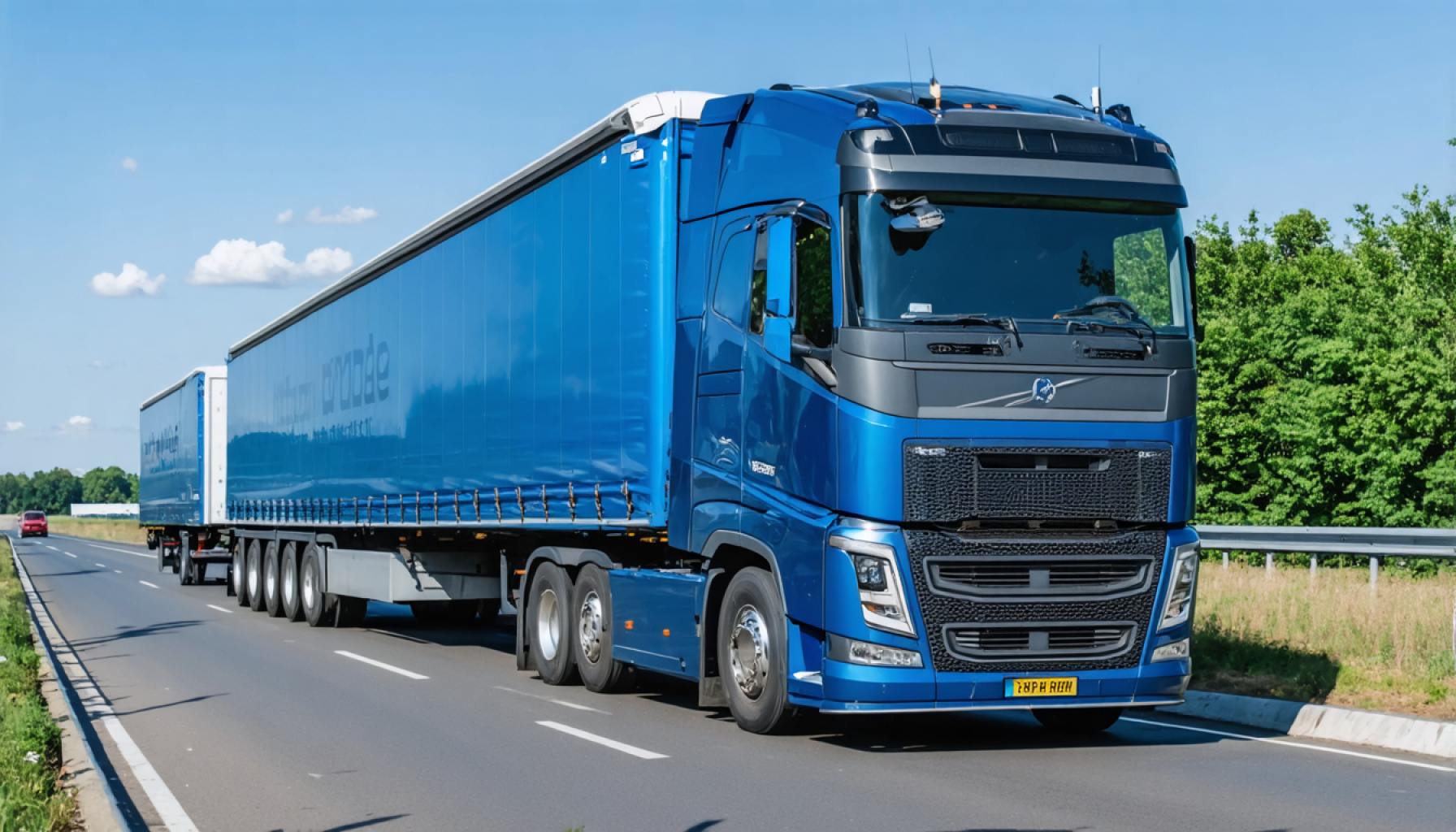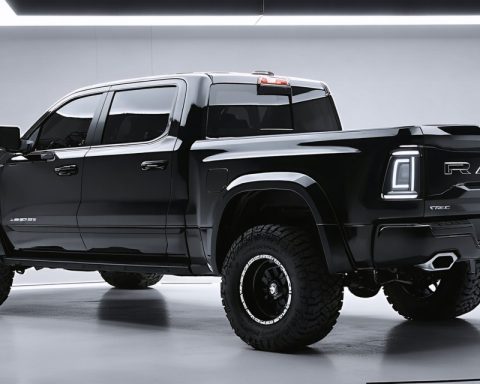- Hydrogen fuel cell technology is revolutionizing the trucking industry, offering a cleaner alternative with zero-carbon emissions through water vapor output.
- Key players like Nikola Motors and Toyota are leading the development of hydrogen-powered trucks, such as Nikola’s Tre and Toyota’s Project Portal, highlighting substantial range capabilities.
- The growth of hydrogen refueling infrastructure, particularly in places like California, supports the scaling up of sustainable freight transport.
- Though hydrogen production currently relies on fossil fuels, advancing renewable technologies aim to make green hydrogen a viable option.
- Hydrogen trucks offer a pivotal step toward reducing greenhouse gas emissions, enabling fleet operators to embrace environmentally responsible logistics.
- Adopting hydrogen fuel in transportation marks a crucial move for sustainable growth, facilitating a transformative shift in how goods are delivered worldwide.
The roar of diesel engines may soon be replaced by the quiet hum of hydrogen fuel cells as the trucking industry shifts gears towards a cleaner, greener future. Picture towering trucks cruising effortlessly along highways, leaving nothing but water vapor in their wake. This is not a scene from a science fiction movie; it’s the burgeoning reality of hydrogen-powered transportation, a pivotal stride towards reducing carbon emissions in freight.
Hydrogen trucks are gaining momentum as they promise to revolutionize the logistics sector. At the heart of this innovation lies the hydrogen fuel cell, an engineering marvel converting hydrogen gas into electricity by combining it with oxygen. The only byproduct? Pure water. This remarkable technology offers a beacon of hope for cutting emissions where it counts, with heavy-duty trucks being responsible for a substantial part of global greenhouse gases.
Leading the charge, companies like Nikola Motors and Toyota aim to redefine transportation with their pioneering hydrogen truck models. Nikola’s Tre and Toyota’s Project Portal concept demonstrate the potential to combine robust performance with eco-friendly credentials. These trucks can match, or even surpass, the range of traditional diesel trucks, travelling up to 500 miles on a single tank of hydrogen.
With infrastructure growing to meet demand, more hydrogen refueling stations are emerging along critical freight corridors. California stands at the forefront, with ongoing investments to support a network of hydrogen stations designed to accommodate this next wave of sustainable vehicles. As the network expands, the feasibility of large-scale hydrogen truck deployments becomes increasingly tangible.
However, the journey is not without challenges. Hydrogen production requires significant energy input, often derived from fossil fuels. Yet, advances in renewable energy sources, like solar and wind power, coupled with electrolyzer technology, aim to make green hydrogen a definitive reality, thereby reducing the carbon footprint of hydrogen production itself.
Ultimately, hydrogen trucks symbolize a crucial leap towards decarbonizing transportation, paving roads with sustainability. As fleet operators begin switching to this innovative technology, the broader impact promises not just cleaner air, but a transformative shift in how goods are delivered worldwide.
The takeaway message is clear: embracing hydrogen as a fuel for freight transport is not just an option—it’s an imperative for sustainable growth. As hydrogen trucks roll out worldwide, their quiet engines herald a new era, one where transportation and environmental stewardship travel hand in hand toward a cleaner future.
The Future of Freight: How Hydrogen Trucks Are Transforming the Logistics Landscape
Introduction
The trucking industry is at a pivotal juncture as it transitions from diesel engines to hydrogen fuel cells, promising a future where freight transport is both efficient and environmentally sustainable. Hydrogen trucks are leading this revolution, combining high performance with the ecological benefit of zero emissions.
Insights and Predictions for Hydrogen-Powered Trucks
1. Industry Trends and Market Forecasts
The global hydrogen fuel cell vehicle market is expanding rapidly, with projections suggesting a compound annual growth rate (CAGR) of over 30% by 2030. Significant investments from automotive giants like Hyundai, Daimler, and Volvo indicate a strong momentum towards hydrogen-powered solutions in logistics.
2. How Hydrogen Fuel Cells Work
Hydrogen fuel cells generate electricity through a chemical reaction between hydrogen gas and oxygen. This technology not only produces water and electricity but also boasts an efficiency rate of up to 60%, considerably higher than internal combustion engines.
3. Real-World Use Cases
Countries like Germany and Japan are spearheading the adoption of hydrogen trucks. Germany’s H2 Mobility initiative aims to build a nationwide hydrogen refueling network, while Japan sees hydrogen as a cornerstone of its energy strategy, integrating hydrogen trucks into its logistics systems.
Pros and Cons Overview
Pros
– Zero Emissions: Hydrogen trucks emit only water vapor, significantly reducing air pollution.
– Long Range: Capable of traveling approximately 500 miles on a single tank, similar to diesel trucks.
– Quick Refueling: Hydrogen trucks can be refueled as quickly as diesel counterparts, ensuring minimal downtime.
Cons
– Infrastructure Challenges: Limited hydrogen refueling stations remain a hurdle, although investments are underway to expand this network.
– High Production Costs: Hydrogen trucks are currently more expensive than traditional trucks, but costs are expected to decrease as technology matures.
Challenges and Limitations
A significant challenge is the reliance on fossil fuels for hydrogen production. Transitioning to green hydrogen—produced using renewable energy—is crucial. Technologies such as solar- and wind-powered electrolyzers are at the forefront of this transition.
Recommendations and Practical Tips
1. Monitor Technological Advances: Stay informed about breakthroughs in hydrogen production and fuel cell efficiency to anticipate market shifts.
2. Engage with Infrastructure Initiatives: Participate in dialogues and projects aimed at expanding hydrogen refueling networks.
3. Evaluate Fleet Transition Plans: Analyze the long-term benefits of integrating hydrogen trucks into your logistics operations considering reduced emissions and potential cost savings.
Conclusion
Hydrogen fuel cells represent a paradigm shift in freight transportation, providing a blend of robust performance and environmental responsibility. As technology and infrastructure catch up, the adoption of hydrogen trucks is not merely an option but an imperative for sustainable growth in the logistics industry.
For more insights on hydrogen transportation and sustainable technologies, visit U.S. Department of Energy.


















